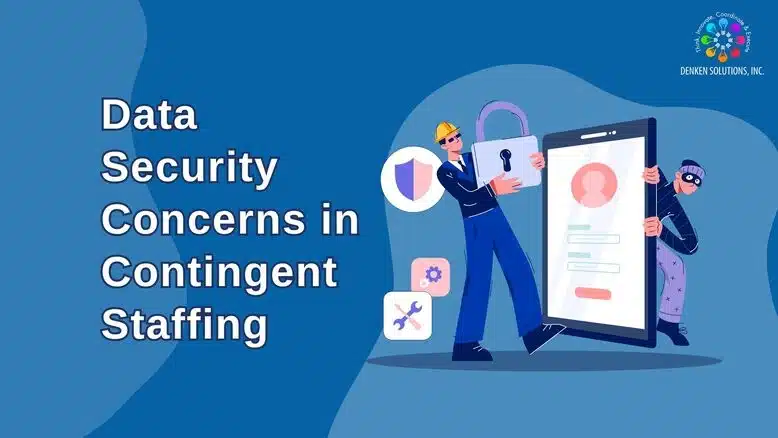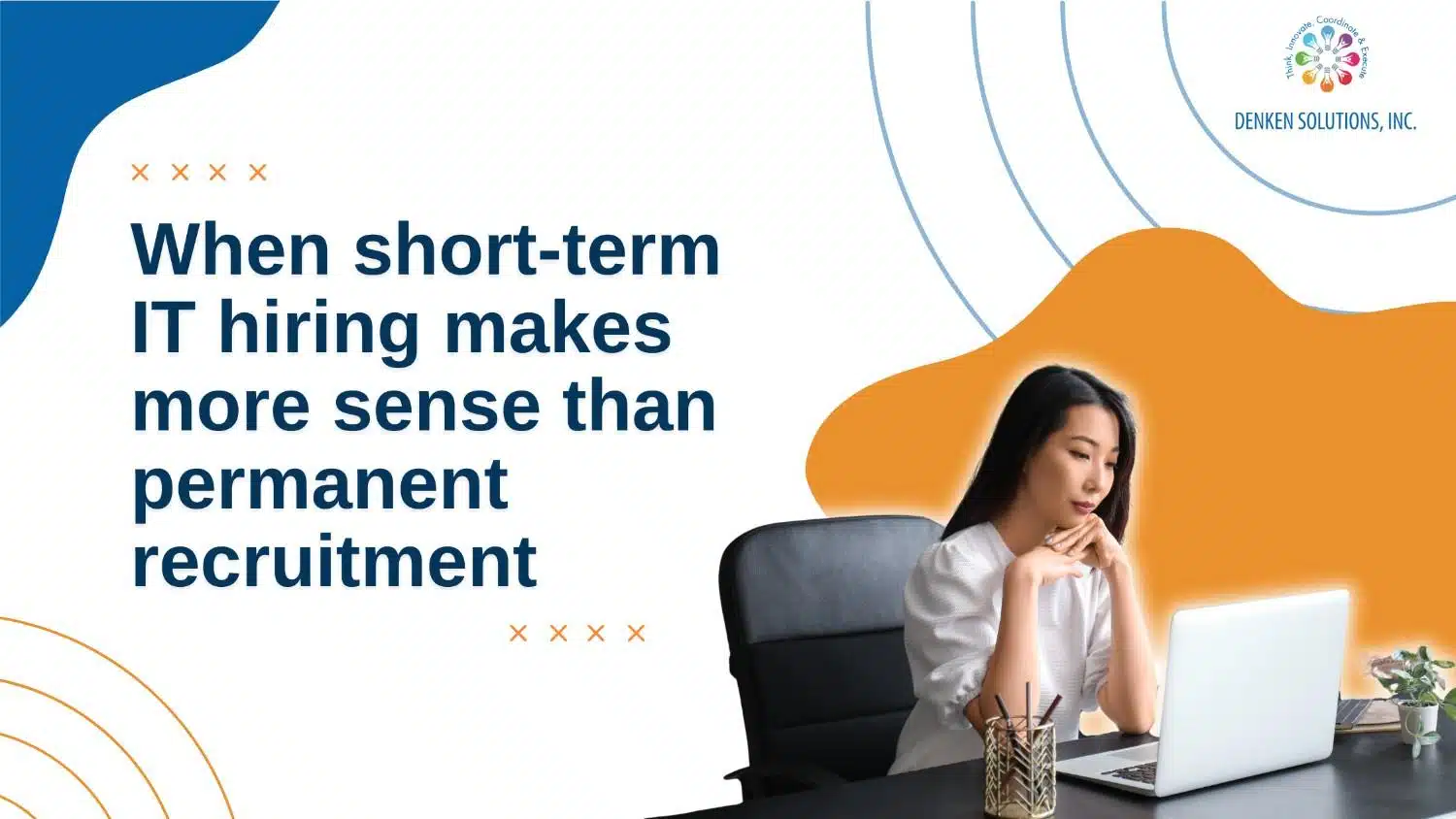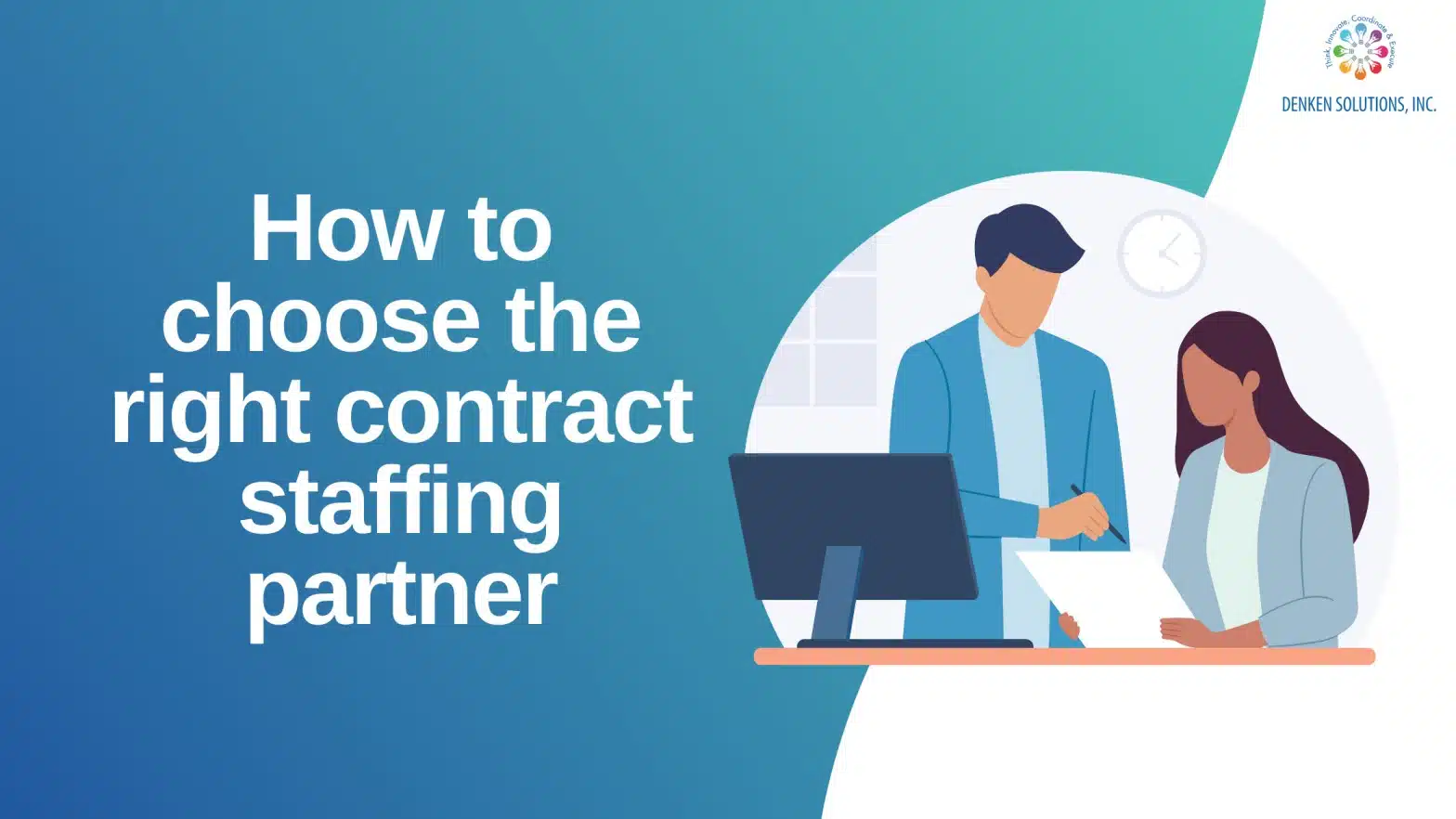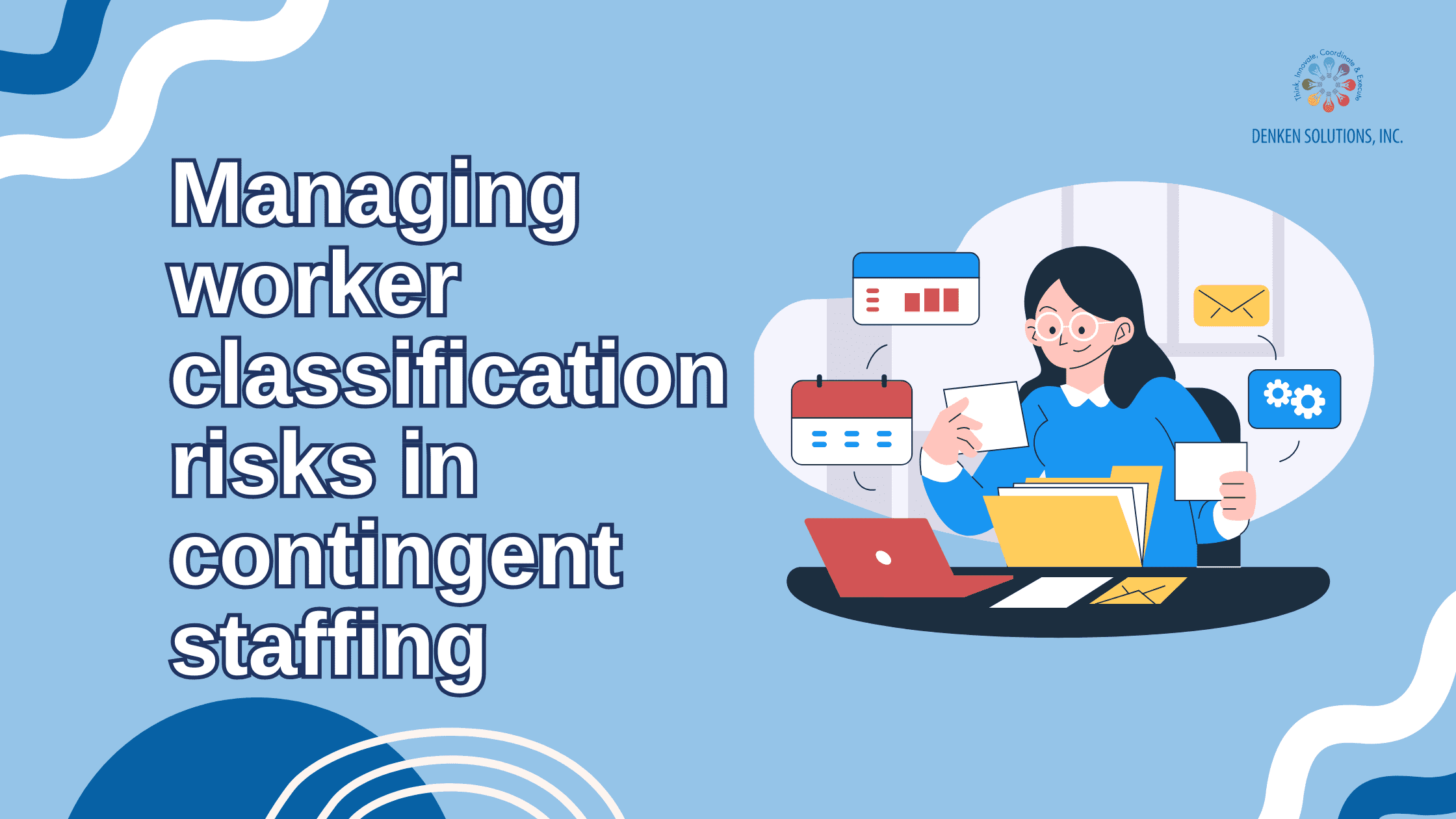Lately, businesses are increasingly relying on contingent workers. Therefore, managing temporary, freelance, and contract talent is becoming an important part of the operation. While this approach will offer flexibility and cost-efficiency, it will also introduce privacy and data security concerns that cannot be overlooked. From sensitive employee information to company data, organizations should ensure that security measures and compliance protocols are in place. Understanding these risks and implementing effective safeguards is important to protect the business and its contingent workforce while also maintaining trust and operational efficiency.
Businesses can take advantage of a contingent workforce while protecting their data and preserving operational integrity by being aware of the possible hazards and taking proactive steps to create safe and legal workforce management procedures.
In this blog, we have explored the key privacy and data security concerns in managing a contingent workforce and shared the best practices to protect the organization while leveraging flexible talent effectively.
What is a contingent workforce?
A contingent workforce will refer to a group of non-permanent workers who are hired by an organization on a flexible or temporary basis to meet certain business needs. This will include freelancers, consultants, independent contractors, part-time employees, and temporary staff. Unlike full-time employees, contingent workers will typically not have long-term contracts or the same benefits as permanent staff, but they will provide businesses with flexibility to scale workforce based on project demands, seasonal workloads, or specialized expertise.
Contingent workforce jobs are becoming an essential part of modern business operations. They will allow organizations to access diverse skill sets, reduce operational costs, and respond quickly to market changes. However, the flexibility will make temporary workers valuable and introduce challenges, especially around security, compliance, and data privacy. Since these workers will often have access to sensitive systems and information, organizations should adopt structured management practices to mitigate risks.
To learn more about building a contingent workforce, check out our blog on tips to build a contingent workforce strategy.
Why does privacy and data security matter?
With everything getting digitized and interconnected, contract workers often tend to have access to sensitive company information, intellectual property, client data, and important internal systems. While these flexible work arrangements will offer multiple advantages like cost efficiency, scalability, and specialized skills, they will also introduce significant privacy and data security risks.
Data security in staffing can result in financial losses, legal penalties, and reputational damage. Even a single unsecured login or mishandled file by a contractor could compromise confidential data or expose the organization to regulatory scrutiny.
Moreover, businesses operating across borders should navigate a complicated landscape of compliance requirements and other local data protection laws. Failing to safeguard sensitive data could lead to monetary fines and loss of client trust, which can be a consequence that can be way more damaging in the long term.
Privacy and data security in staffing are not just IT concerns; they are strategic business imperatives. Ensuring that temporary workers will handle data efficiently is important to maintain operational integrity, which protects the company’s assets and sustains client confidence.
By understanding the risks and implementing strong policies, businesses can constantly leverage the benefits of a flexible workforce without having to compromise the safety of the data.
What are the risks of hiring contingent workers for your business?
Hiring contract workers, which includes freelancers, contractors, or temporary staff, will bring flexibility and cost savings. However, it will also introduce various risks for businesses. Here is a detailed breakdown:
1. Security risks and data privacy:
Temporary workers will often access sensitive company information, intellectual property, and client information. However, unlike full-time employees, they might use personal devices, unsecured networks, or cloud services, which increases the chances of data breaches. Limited oversight will make it harder to monitor how data is handled or shared.
2. Legal risk and compliance:
Businesses are responsible for ensuring labor law compliance, which includes contingent staff. Misclassifying workers can cause fines, back taxes, or penalties. Global hiring will introduce additional challenges like tax regulations, local employment laws, and work permits.
3. Accountability and quality issues:
Contract workers are usually not as integrated into the company’s culture and processes. Limited time with the organization can lead to inconsistent performance or errors. Accountability will be harder to enforce if work is done remotely or off-site.
4. Concerns with Intellectual Property:
Work produced by contractors could involve IP ownership issues. Without any proper contracts, businesses risk disputes over who will own the created work or ideas.
5. Communication and operational challenges:
Temporary workers will usually work remotely or across multiple time zones. Due to this, the collaboration might get affected since there won’t be alignment with internal teams. Onboarding, training, and knowledge transfer can be inconsistent or slower.
6. Financial risks:
While hiring contingent workers is a cost-effective solution, the costs can escalate if the contracts are not managed properly. The hidden costs can include management overhead, training, and potential legal liabilities.
Best practices to avoid security risks when managing contingent workers:
Hiring gig workers will offer flexibility and access to specialized talent; however, it will also introduce the business to potential security risks. To protect sensitive business data and ensure compliance, companies should adopt proactive strategies. Here are the best practices to mitigate security risks while also managing a contingent workforce:
1. Implementing strict access control:
Limit the temporary workers’ access to tools, systems, and data required for the specific role. Avoid giving them complete access to company-wide resources and regularly review the permissions to ensure outdated access is revoked.
2. Utilizing secure collaboration tools:
Ensure all communication and file sharing with contract workers will happen through secure and enterprise-approved platforms. Avoid personal emails or unsecured messaging apps to prevent leaks in data security in staffing.
3. Conduct a thorough background check:
Before onboarding, perform a detailed background check to verify experience, credentials, and increase trust. This will reduce the risk of insider threats or fraudulent activities.
4. Providing cybersecurity training:
Educate contract workers about the company’s workforce privacy regulations, phishing attacks, managing passwords, and safe data handling practices. Awareness is a key line of defense against threats.
5. Establish a clear policy and NDA:
Draft clear agreements that outline expectations regarding data privacy, confidentiality, and intellectual property. Non-disclosure agreement and contract should clearly define repercussions for violations.
6. Monitor the usage and activity:
Use monitoring tools to track data transfers, access logs, and system activity of gig workers. This will help detect suspicious behavior early and ensure accountability.
7. Audit regularly and update the security protocols:
Security is a continuous process. Regularly audit the systems, update the security protocols, and adjust the contingent workforce policies to address emerging threats or compliance requirements.
8. Partner with trusted global employment providers:
Working with an experienced employment solutions or staffing partner will ensure that contingent hiring will adhere to compliance standards, which include secure onboarding, HR management practices, and payroll.
What is the role of technology in contingent workforce security?
Technology plays an important role in safeguarding sensitive data and ensuring privacy while also managing a contingent workforce. With contracts often accessing company systems remotely, relying primarily on manual processes can leave organizations vulnerable to unauthorized access and compliance violations.
Advanced secure collaboration platforms, workforce management tools, and access management systems will help businesses control, monitor, and track how contingent workers will interact with important information. Features like role-based access control, automated permission revocation, and multi-factor authentication can ensure that contractors can only access data important for tasks, which reduces the risk of accidental or intentional leaks.
Additionally, technology will enable flexible auditing and reporting capabilities. Organizations can handle login activities, system usage, and file downloads in real time, which creates visibility into potential security threats and ensures compliance with regulatory requirements. Cloud-based solutions will provide encryption and secure storage, which will minimize the risk of data exposure.
Technology will support training and compliance programs. Integrated platforms can automatically deliver security awareness modules, acknowledgement tracking, and policy updates, which will ensure that every contingent worker understands their responsibilities and follows best practices.
How will Denken Solutions help address privacy and data security concerns in contingent workforce management?
Managing temporary workers will come with privacy and data security in staffing. Denken Solutions will provide businesses with a compliant and secure framework to manage the contingent workforce effectively. This is how we can help:
1. Compliance management:
We will ensure that all contingent hiring will follow local and international data protection regulations, which minimize legal risks and safeguard sensitive information.
2. Secure HR systems and payroll:
Employee data, sensitive HR information, and payroll details are stored and processed using encrypted systems, which will prevent unauthorized access.
3. Controls monitoring and access:
We implement a role-based access control system that controls and monitors activities to ensure that confidential data is only accessible to authorized personnel.
4. Contractor and vendor vetting:
All third-party vendors and contractors are perfectly screened to ensure adherence to compliance and protocol standards.
5. Training in data privacy:
Our teams and contingent workers will undergo regular training to understand data privacy best practices and avoid unforeseen breaches.
6. Technology-driven solutions:
From secure onboarding platforms to automated timesheets and performance tracking, our technology stack will ensure that sensitive data is handled efficiently and safely.
Conclusion:
Protecting sensitive data becomes crucial as companies depend more and more on contract workers. In addition to being necessary for compliance, privacy and data security are also critical for upholding confidence, safeguarding intellectual property, and guaranteeing efficient corporate operations. Organizations can reduce risks while still taking advantage of the flexibility and knowledge that gig workers provide by putting strong security procedures in place, utilizing technology, and adhering to workforce management best practices.
In the end, a safe and effectively managed contingent workforce job will enable companies to grow effectively, innovate with assurance, and maintain their competitiveness in a world that is becoming more digital and linked by the day.



